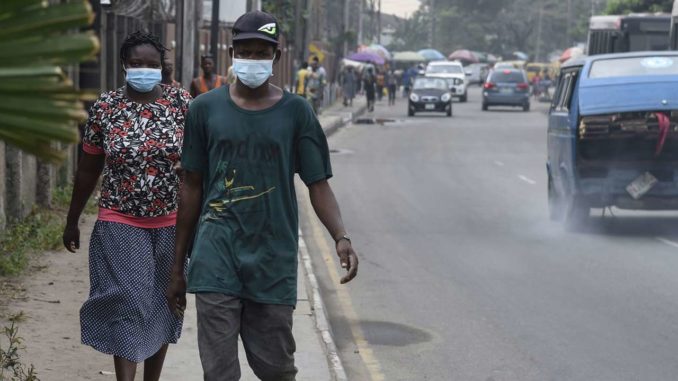
Since late February when a certain Italian suspected to be infected with the dreaded Coronavirus arrived in Nigeria through the international airport in Lagos, concern for public health has been national with the states and Federal Governments doing their best to contain the pandemic. The media has, indeed, been awash with news of how, the authorities are responding to what has become a global plague. Both the state governments and the Federal Government through the Federal Ministry of Health and the National Centre for Disease Control (NCDC) have commendably in their respective prompt and ongoing efforts to track all persons who may have had contact with the foreigner and risked thereby, infection. Beyond this, these two levels of government have been observably up and doing- putting in place treatment facilities, relentless multimedia campaigns and ensuring the lockdown of specified territories to protect public health.
Lagos State is, understandably, in the lead in the anti-COVID-19 efforts. The state government is distributing food packages to the elderly and the needy. It is relaxing the rule on lockdown to allow neighborhood food markets in designated areas. The economic capital of West Africa (Lagos) allows pharmacies and some convenience stores to open to the public on condition that the guidelines on public safety are observed.
But there has been a curiosity of some sort, while the other two tiers of government have been battling the scourge, the third tier of government is virtually nowhere to be seen. There hasn’t been any thing of significance at this level of administration. Except for a few reports of activities – fumigation of the environment by personnel of the Mushin local authorities, the Langtang North Local Government in Plateau State, and the Agege Local Government authorities in Lagos shutting down and fumigating a mosque where worshippers earlier congregated in defiance of state order, the local government cannot at all be said to be evidently active as they should be. In specific relation to the clear and present threat to public health, the constitution states the functions of a local government to include in the Fourth Schedule 2 (c) “the provision and maintenance of health services.”
There are 774 constitutionally recognised local government authorities administered, in principle by democratically elected local government councils. This is the tier of government closest to the poor citizens who, by the way constitute a majority of Nigerians. The local government authorities are for good reasons, expected to be acutely aware of, and concerned about the needs of the people and the prevailing conditions – security, health, education, and economy- within their respective jurisdictions.
Doubtless, as COVID-19 poses an existential threat to local and global health, every hand must be seen to be on deck to fight it and save mankind.
We challenge every local government council to demonstrate its commitment by doing whatever needs to be done. First, they should be seen to enforce the state and federal stay-at-home directives, the fumigation of the environment, and the non-congregation of more than 20 persons. In this connection, it was an outrageous defiance of public safety regulation when some persons congregated somewhere in the north denying the existence of Coronavirus.
Pray, where were the local council officials, the police, and other law enforcement agents? Second, councils should aggressively enlighten their publics on the recommended steps against infection through local media such as town criers, and place for public use at designated locations simple facilities such as basins, soap and water. Third, toward raising money to pay for persistent public enlightenment, food packs to the poor and the elderly, for the provision of face masks, clean water and soap, support the health centres and their personnel, and other necessities, councils should request assistance in cash and in kind from local businesses, the rich in their communities, the elected officials in the state and federal legislatures, even from the religious groups.
Fourth, in Lagos State, because the local councilors, through their wards, know more accurately those who genuinely deserve the food assistance being distributed by the state authorities, councils must get involved in the exercise. The direction and longevity of the present situation is unpredictable. Local councils, therefore, should buy up from local farmers, the perishable food items and think of ways to conserve these items for future sale or distribution.
COVID-19 is a crisis that tests the quality of a leadership. This is the time Nigerians must stand together, and everyone, starting with the leaders at every tier of government, must come up with out-of-the-box solutions to the unusual predicament that we have found ourselves in. In addition, it is expected that chairmen and councilors would be out on the streets empathizing with, campaigning and demonstrating to their people what needs to be done to keep safe. Nigerians need their leaders now and local government officials must not be found wanting.
END

Be the first to comment